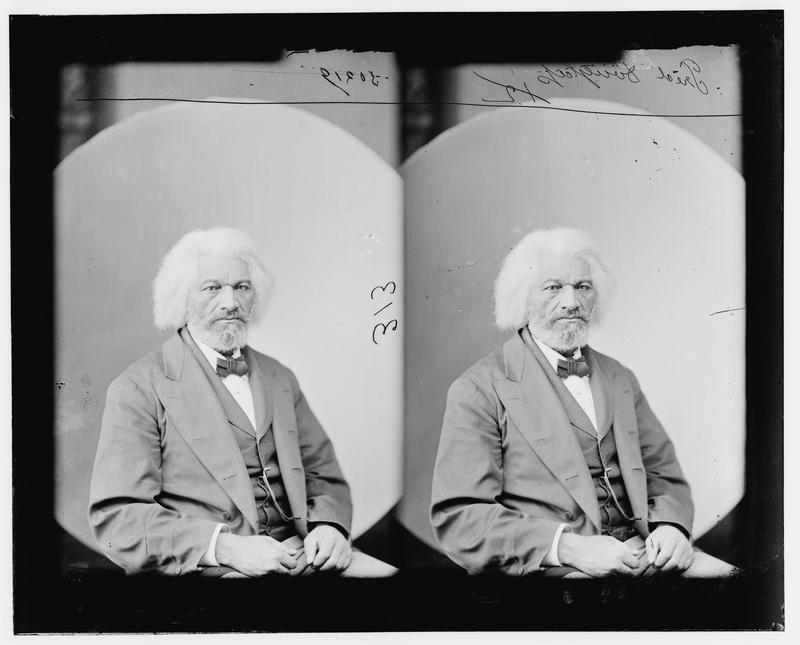Dedication of Frederick Douglass Circle, 1950

Community leaders gathered this past Tuesday to dedicate a statue of 19th century social reformer and abolitionist Frederick Douglass. This tribute to Douglass is the result of "a series of community-based design workshops organized by the Central Park Conservancy [that] led to the NYC Department of Cultural Affair’s Percent for Art design competition for the circle. In 2003, the competition was won by a collaborative proposal submitted by Harlem-based artist Algernon Miller and Hungarian-born sculptor Gabriel Koren." In addition to the eight-foot bronze sculpture, the surrounding area also pays tribute to Douglass's work through "paving patterns based on traditional African-American quilt motifs" and "a bronze water wall depicting the Big Dipper constellation that guided those on the underground railroad."
The site of this sculpture, Frederick Douglass Circle at Central Park West, Frederick Douglass Boulevard and West 110th Street in Manhattan was initially dedicated September 20, 1950. The dedication convened on that fall afternoon following a 1,000 person march from 135th Street and Seventh Avenue to the circle. Many civic leaders and members of the community gathered, though perhaps most the most notable guests in attendance were four of Douglass's great grandchildren and five of his great-great grandchildren.
Glester Hines, chairman of the Peoples Civic and Welfare Association, acted as emcee for the day's event. Speakers included Bishop R.C. Lawson, an early Pentecostal leader, and Councilman Earl Brown, who had introduced the bill to rename the circle Frederick Douglass Circle. Robert F. Wagner spoke on the virtues of Democracy and the threats of prejudice and discrimination, saying: "We must on this occasion dedicate ourselves once again to a vigorous defense of the principles for which Frederick Douglass fought so firmly and steadfastly. In this period of crisis, it is vital that we become more aggressive in the forward movement designated to strengthen our democratic faith and practices. democracy will not emerge victorious by pious statements about democracy's virtues. We can make democracy a living reality only by practical and tangible achievements which affect our people in their daily lives."
